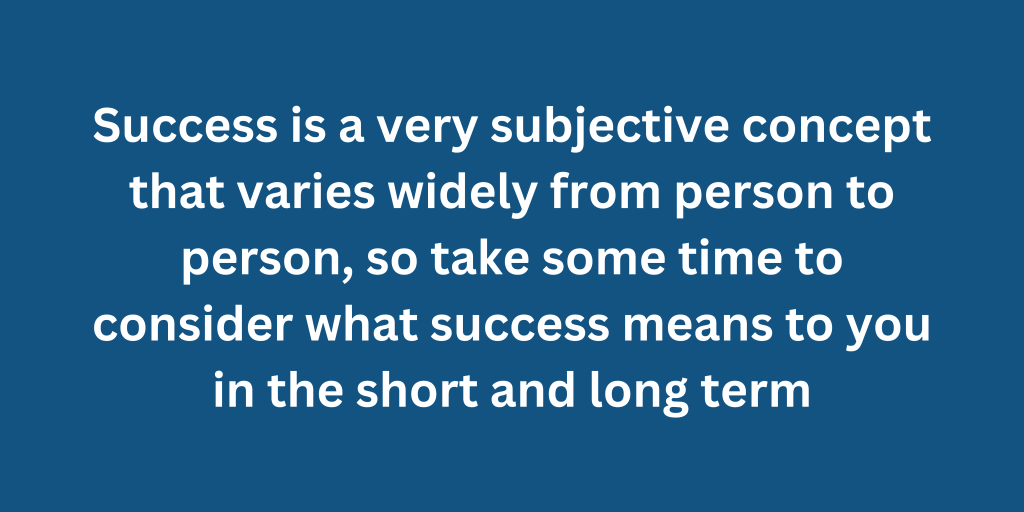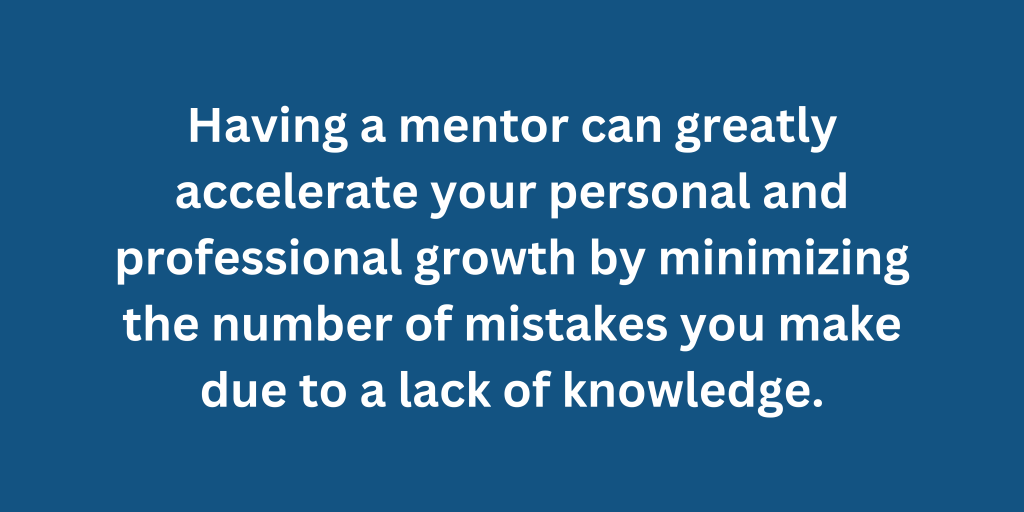Whether personal, professional or a combination of the two, the quest for success motivates us to overcome obstacles. For many people, success is closely related to financial stability, so when people refer to achieving success in life, it’s usually in the context of having money and living comfortably. When we evaluate success based on financial measurement alone, we might be overlooking some crucial components that contribute to a meaningful life, such as good health, personal fulfilment, meaningful relationships and work contributions. We can’t overstate how important money is, however, it is equally important for people to set their standards for success based on their values and goals.
What Makes a Person Successful In Life?
Several factors contribute to success, but hard work, resilience and foresight are crucial. These elements are in our control regardless of other socio-economic factors that might be out of reach.
Hard work
Hard work is an essential component of success. It involves persistent work, tenacity, and discipline. Even the most gifted individuals may fall short of their goals if they lack a strong work ethic. It is the driving force behind the advancement and growth required for success.
Resilience
Resilience is the ability to recover from setbacks, obstacles, and failures. Setbacks and obstacles are unavoidable in the pursuit of success, but it is through resilience that people can adapt, learn, and develop. Accept problems as opportunities to learn, be tough in the face of adversity, and embrace setbacks as stepping stones to achievement. Resilience requires courage and courage is the willingness to leave one’s comfort zone and seek possibilities in the face of fear or uncertainty.
Foresight
Foresight is the ability to anticipate or forecast future events or trends and make well-informed judgements based on data. Success frequently depends on the ability to recognize and seize opportunities when they arise. You develop this ability by being proactive, staying educated, networking, being a keen observer and having a growth mentality.
How to Achieve Success In Life
Success Key One | Clarify Your Goals
To be successful, you must first set your goals and create a clear vision of what you want to achieve. Consider your interests and skills. Success is a very subjective concept that varies widely from person to person, so take some time to consider what success means to you in the short and long term. This clarity will act as a guide for your actions and decisions. In addition, turn your vision into achievable goals and this means setting SMART goals. The acronym SMART stands for Specific, Measurable, Achievable, Relevant, and Time-bound. Break down your long-term goals into smaller ones that correspond to your talents and resources. This strategy helps you to make steady progress while avoiding burnout. Remember that every step forward, no matter how tiny, brings you closer to your goal.
Success Key Two | Identify Your Skills
Consider how your interests and skills can be used to produce value in the marketplace. No skill cannot be traded for value. The key is knowing where your customers are and what level of expertise they require of you. Continuous development enhances your market value, making you stand out.
Success Key Three | Be a Life-Long Learner
Commit to a lifelong journey of personal and professional growth. Stay curious, seek new knowledge, and seize opportunities to learn new skills. The world is constantly changing, and those who adapt and stay ahead of the curve are more likely to thrive. Many people have achieved success through traditional education, yet many millionaires dropped out of college. Whether you pursue a formal school path or not, developing a lifetime learning mindset is critical. Education is the accumulation of information, skills, and experiences throughout your life, so be open to learning from a variety of sources. Steve Jobs took a class in calligraphy after he dropped out of college, and that class influenced the font style and typeface for the first series of Mackintosh computers. This shows that unexpected experiences and encounters can teach us lessons that can be applied to other areas of our lives. Moreover, learn how to market and sell your product. This is an essential skill that will serve you regardless of the path you take.
Success Key Four | Find a Mentor
Look for people who are willing to share their knowledge and experiences with you. Mentors are essential because they can provide a framework for achieving success in your selected area of interest. Having a mentor can greatly accelerate your personal and professional growth by minimizing the number of mistakes you make due to a lack of knowledge. Furthermore, mentors can open doors and provide significant resources and opportunities for their mentees. It can be challenging to find a suitable mentor, regardless, you can build a supportive network of people with similar ambitions as you. These people will inspire, encourage, and advise you. Having a robust network also improves your access to important information and opportunities. Seek mentors, become involved in your community or professional organization, and create meaningful relationships.
Success Key Five | Take Action
Success requires persistent action and perseverance in the face of adversity. However, It is important to arm yourself with relevant knowledge before taking action. knowledge lays the foundation for sound decision-making and increases your chances of success. You have to combine striving with expert knowledge to be successful. Monitor and review your progress regularly to ensure you are on the right track. Set key performance indicators (KPIs) and assess the effectiveness of your efforts. Compare the results to your initial expectations and make any necessary adjustments. This constant evaluation allows you to understand what works well and what needs to be improved.
Success Key Six | Embrace the Process
Recognize that success is a slow and steady process that requires patience and perseverance. Moreso, understand that meaningful accomplishments take time. Striving for success is stressful and will impact your mental health. So, It is very important to manage your expectations and set realistic goals that are consistent with your strengths and skills. Focusing on yourself instead of comparing your progress to those of your peers is a struggle all by itself. However, remember to be kind to yourself and cultivate self-compassion. Recognize that it is natural to endure obstacles and setbacks along the path. Understand, forgive, and be patient with yourself. Forgive yourself for all the mistakes you made because you didn’t know better. You can’t change the past but you can take better actions now that you know better. And you will make new mistakes which are OK as well. Self-compassion cultivates a healthier perspective and helps lessen self-imposed pressure, allowing you to negotiate obstacles with resilience and maintain overall well-being.
Self Reflect
Lastly, check whether you are still excited about the path you’ve selected and whether it corresponds with your long-term goals. Reassess your progress and make any required changes to keep on target. Self-reflection assists you in staying connected to your purpose, making educated decisions, and maintaining the perseverance required to reach your metaphorical “promised land.”




